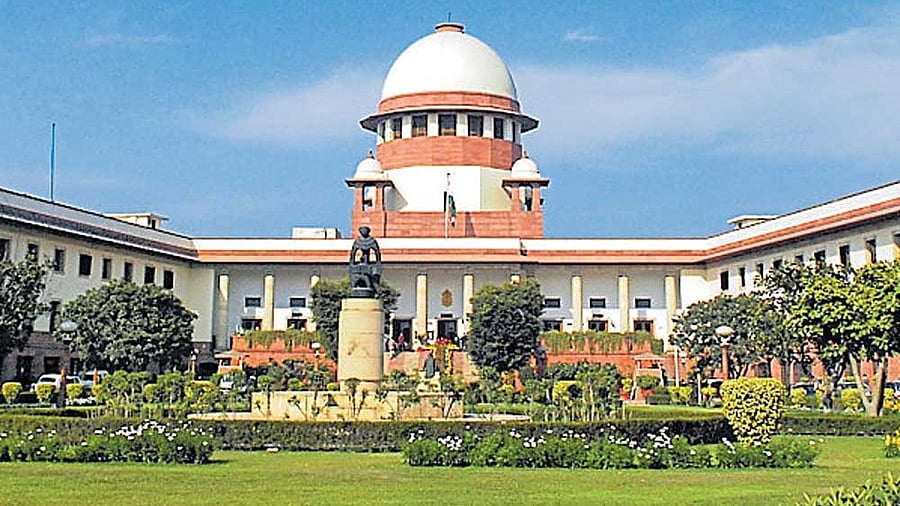
The Supreme Court of India
Credit: DH File Photo
New Delhi: The Supreme Court has said that incorrect mentioning of the amount or even a typographical error would be fatal to the legality of the notice in cheque dishonour cases, given the need for strict mandatory compliance under the Negotiable Instruments Act.
In a recent judgment, a bench of Chief Justice of India B R Gavai and Justice N V Anjaria said it is mandatory that the demand in the statutory notice has to be the very amount mentioned in the cheque.
"Even if the cheque details are mentioned in the notice, but the corresponding amount of the cheque is not correctly mentioned, it would not bring in law the validity for such notice. Here, the principle of reading of notice as a whole is inapplicable and irrelevant. Any elasticity cannot be adopted in the interpretation. It has to be given technical interpretation," the bench said, upholding the quashing of a case.
Appellant Kaveri Plastics contended in the notice sent under Proviso (b) to Section 138 of the NI Act mentioning of the wrong amount in the cheque was in the nature of a typographical or inadvertent error.
It said the court ought to have looked at the substance of the matter rather than becoming technical. The offence under Section 138 of the NI Act is essentially a civil wrong in the attire of a criminal offence; the technicality should not be allowed to prevail, the appellant said.
The court pointed out that the amount covered by the dishonoured cheque is one of the main ingredients of the offence under Section 138 of the NI Act. If the main ingredient is not satisfied on account of a discrepancy in the amount mentioned in the cheque and one mentioned in the notice, all proceedings under Section 138 of the NI Act would fall flat as bad in law, it held.
The amount mentioned in the cheque issued by accused No 1 Nafto Gaz India Private Limited and its directors was Rs 1 crore but the appellant in the statutory notice demanded Rs 2 crore.
The court held that when the cheque amount is not mentioned in the Proviso (b) notice or the amount is different from that mentioned in the cheque, such notice would stand invalid in the eyes of the law.
The notice in terms of Proviso (b) being a provision in the penal statute and a condition for the offence, it has to be precise while mentioning the amount of the cheque which is dishonoured, the bench said.
The court emphasised that when the provision is penal and the offence is technical, there has to be strict compliance.
